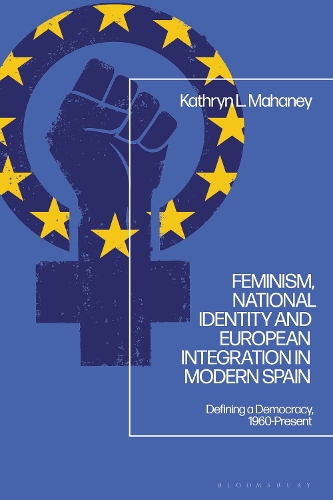
Feminism, National Identity and European Integration in Modern Spain: Defining a Democracy, 1960-Present
(Paperback)
Available Formats
Publishing Details
Feminism, National Identity and European Integration in Modern Spain: Defining a Democracy, 1960-Present
By (Author) Dr Kathryn L. Mahaney
Bloomsbury Publishing PLC
Bloomsbury Academic
27th November 2025
United Kingdom
Classifications
Tertiary Education
Non Fiction
Feminism and feminist theory
Physical Properties
Paperback
224
Width 156mm, Height 234mm
Description
This book explores the evolution of Spanish feminism in the context of European feminisms and institutions from the 1960s to recent times.
Beginning with Seccin Femenina, the official Francoist womens organization, Feminism, National Identity and European Integration in Modern Spain traces the interplay between Spanish womens policy and international policymaking. In some cases, as with the Seccin Femenina-championed Law of Political Rights (Ley de Derechos) in 1961, Spanish womens policy at least appeared more progressive than what Western democracies offered notable at a time when Spain was considered backward. After Francos death in 1975, Spains democratic transition seemingly consolidated forward-thinking womens policy with a Constitution that guaranteed equality of the sexes in 1978, and with the creation of a national bureau charged with crafting womens policy, the Instituto de la Mujer (Womens Institute), in 1983.
Yet feminists found themselves marginalized in Spanish political decision-making, as Kathryn L. Mahaney argues so successfully in this study. Mahaney reveals that women ultimately influenced domestic policy not by acting within national networks but by leveraging European connections, particularly after Spain joined the European Economic Community (EEC) in 1986. The book shows that Spanish feminists worked through the EEC to gain international approval of policies that had met domestic opposition, and did so by representing them as necessary litmus tests of nations democratic integrity. Their proposals were shaped by the specific context of Spanish feminism, but also by Spanish debates about what rights democracies should grant women and what equality in a post-fascist nation should encompass. This ground-breaking study explains that, in turn, these processes shaped both Spains and the European Unions much-prized self-identities as democratic communities.
Author Bio
Kathryn L. Mahaney is Postdoctoral Researcher at the University of Helsinki, Finland.
